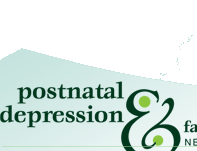 |
 |

|
|
|

ParoxetineThis section is designed to inform professionals.(Consumers, see Fact Sheet on Paroxetine) Available as Aropax and Loxamine. Use in Pregnancy
Category D (but there is debate over this and it may be reclassified as C or B) First trimester
There are several published studies that have failed to show any association between exposure to Paroxetine and malformations (1) (2) (11) (16), and no association with malformations has been shown by SSRIs as a class (3) (4). There is, however, ongoing debate about the incidence of cardiac malformations associated with first trimester exposure to paroxetine. However, the Einarson study, the largest to date, (16) did NOT find an increased rate of cardiac malformations. This study included 1,174 cases of first trimester paroxetine exposure from eight teratology services and 2,061 cases from five previously published database studies. Thus the weight of evidence suggests that there is not an increased risk of cardiac malformations associated with first trimester exposure to paroxetine. However, concerned mothers can be offered ultrasound and echocardiographic investigations that can detect and rule out fetal cardiac problems in early pregnancy. Careful consideration should be given to the risk of relapse if paroxetine is discontinued. The risk of relapse if antidepressant medication is stopped in pregnancy has been shown to be 68% compared to 26% of those who continue their medication (18). Second and third trimestersOne study (7) suggests that there may be a risk of persistent pulmonary hypertension (PPH) in infants exposed to SSRIs after 20 weeks gestation. The absolute increase in risk in this study was 5 cases per 1,000 exposures. PPH is fatal in 10-20% of cases. This study did not have sufficient statistical power to differentiate between different SSRIs. The potential risk to the newborn of PPH has not been confirmed by additional studies. Uncertainty about these rare events needs to be weight against the potential risk to the mother of recurring depression if she stops Paroxetine. (8) Use in LactationCategory L2
References
(2) Kulin NA. Pastuszak A. Sage SR. Schick-Boschetto B. Spivey G. Feldkamp M. Ormond K. Matsui D. Stein-Schechman AK. Cook L. Brochu J. Rieder M. Koren G. Pregnancy outcome following maternal use of the new selective serotonin reuptake inhibitors: a prospective controlled multicenter study. JAMA. 279(8):609-10, 1998 Feb 25. (3) Kallen BA. Otterblad Olausson P. Maternal drug use in early pregnancy and infant cardiovascular defect. Reproductive Toxicology. 17(3):255-61, 2003 May-Jun. (4) Einarson TR. Einarson A. Newer antidepressants in pregnancy and rates of major malformations: a meta-analysis of prospective comparative studies. Pharmacoepidemiology & Drug Safety. 14(12):823-7, 2005 Dec (5) Epidemiology study: Updated Preliminary Report on Bupropion and Other Antidepressants, including Paroxetine, in Pregnancy and the Occurrence of Cardiovascular and Major Congenital Malformation. GlaxoSmithKline, Unpublished. (6) FDA. Public Health Advisory. Paroxetine. http://www.fda.gov/cder/drug/advisory/paroxetine200512.htm. Created 8 December 2005, Retrieved 5 October 2007 (7) Chambers CD. Hernandez-Diaz S. Van Marter LJ. Werler MM. Louik C. Jones KL. Mitchell AA. Selective serotonin-reuptake inhibitors and risk of persistent pulmonary hypertension of the newborn. New England Journal of Medicine. 354(6):579-87, 2006 Feb 9. (8) FDA Public Health Advisory. Treatment Challenges of Depression in Pregnancy and the Possibility of Persistent Pulmonary Hypertension in Newborns. http://www.fda.gov/cder/drug/advisory/SSRI_PPHN200607.htm. Created 19 July 2006, Retrieved 5 October 2007 (9) Levinson-Castiel et al. Neonatal Abstinence Syndrome After in Utero Exposure to Selective Reuptake Inhibitors in Term Infants. Archives of Pediatric and Adolescence Medicine 206:160:173-176 (10) Sanz EJ. De-las-Cuevas C. Kiuru A. Bate A. Edwards R. Selective serotonin reuptake inhibitors in pregnant women and neonatal withdrawal syndrome: a database analysis. Lancet. 365(9458):482-7, 2005 Feb 5-11. (11) Gentile S. The safety of newer antidepressants in pregnancy and breastfeeding. Drug Safety. 28(2):137-52, 2005. (12) Weissman AM. Levy BT. Hartz AJ. Bentler S. Donohue M. Ellingrod VL. Wisner KL. Pooled analysis of antidepressant levels in lactating mothers, breast milk, and nursing infants. American Journal of Psychiatry. 161(6):1066-78, 2004 Jun. (13) Stowe ZN. Cohen LS. Hostetter A. Ritchie JC. Owens MJ. Nemeroff CB. Paroxetine in human breast milk and nursing infants. American Journal of Psychiatry. 157(2):185-9, 2000 Feb. (15) Kallen B. Neonate characteristics after maternal use of antidepressants in late pregnancy. Archives of Pediatrics & Adolescent Medicine. 158(4):312-6, 2004 Apr. (16) Einarson A, Pistelle A, DeSantis M, Malm H, Paulus W, Panchaud A, Kennedy D, Einarson T, Koren M. Evaluation of the Risk of Congenital Cardiovascular Defects Associated with Use of Paroxetine during Pregnancy. Am. J Psychiatry; AIA:1-4, 2008. (17) Cole J, Ephross S, Cosmatos I, Walker A. Paroxetine in the first trimester and the prevalence of congenital malformations. Pharmacoepidemiol Drug Saf; 16:1075-1085, 2007. (18)Cohen L, Altshuler l, Harlow B, Nonacs R, newport D, Viguera A, Suri R, Burt V, Henrick V, Reminick A, Loughead A, Vitonis A, Stowe Z. Relapse of major depression during pregnancy in women who maintain or discontinue antidepressant treatment.
|
||||||||||||||
Home | About us | Baby | Books & Links | Contact Us | Culture | Fact Sheets | Family/Whanau | Fathers | Glossary | Medical Info | Medications | Post Natal Depression | Pregnancy | Q&A | Related Conditions | Stories | Support | Treatments |


